Kitten Health 101: What’s Normal and When to Call the Vet

The early days with a new kitten can bring a mix of excitement, questions, and more than a few “Is this normal?” moments. That’s okay. It means you care.
At Purebred Kitties, we believe in helping families feel confident, especially when everything is still new. Below, you’ll find a clear, simple guide to understanding what’s perfectly fine—and what might need a call to your vet.
Because peace of mind matters, especially when there’s a tiny heartbeat now depending on you.
What’s Normal During the First Few Days
Kittens are sensitive creatures. The shift to a new home, new humans, and new routines can cause minor changes in behavior or health that are completely normal.
Here’s what doesn’t need immediate worry:
1. Occasional sneezing or watery eyes
Kittens may sneeze or have a little clear eye discharge, especially right after travel. Keep the space clean and warm. Monitor, but don’t panic.
2. Slight drop in appetite (first 1–2 days)
A new environment can cause some hesitation around eating. As long as they’re still nibbling and showing curiosity, give it time.
3. Mild digestive changes
Soft stool or a temporary upset stomach can happen as your kitten adjusts to new food, space, or stress.
4. Hiding or shyness
Some kittens take a few days to peek out from under the bed. That’s okay. Let them set the pace.
📝 Tip: Track how things change each day. Normal adjustment signs should gradually improve—not stay the same or get worse.
Red Flags: When to Call the Vet
Now let’s talk about the signs that do require prompt attention. Some things can’t wait, especially in kittens whose small size means health issues can escalate quickly.
🚩 Vomiting or diarrhea that lasts more than 24 hours
Hydration is critical. If it doesn’t stop after a day, call your vet.
🚩 No appetite for a full day
Even a small kitten needs consistent fuel. A complete stop in eating is a concern.
🚩 Breathing difficulties or coughing
If breathing looks strained, rapid, or if there’s persistent coughing, contact a vet urgently.
🚩 Extreme fatigue or weakness
A sleepy kitten is one thing. A kitten that won’t move, engage, or respond is another. Err on the side of caution.
🚩 Swollen belly or signs of pain
A bloated stomach, hunched posture, or visible distress deserves immediate attention.
🚩 Blood in stool or urine
Even a small amount is worth checking. It’s not something to “wait and see” on.
🚩 Loud, distressed vocalizing
Crying that sounds different—sharp, frequent, or desperate—may mean your kitten is in pain or discomfort.
📝 Tip: If you have a gut feeling something’s off, trust it. You don’t need permission to ask for help.
Daily Monitoring Tips for New Kitten Parents
Sometimes, the smallest habits reveal the most. Here’s how to stay ahead of potential concerns:
-
Track meals: Take mental (or literal) notes on how much and how often your kitten is eating.
-
Watch litter box behavior: Healthy digestion tells you a lot.
-
Observe energy shifts: Kittens sleep a lot, but daily playtime should gradually increase.
-
Notice weight gain: They should feel a little heavier each week. Your vet can confirm this during regular visits.
You don’t need to obsess. Just stay tuned in. Think of it as quiet observing, not hyper-monitoring.
When in Doubt, Ask
You’re not expected to know everything on day one. No parent—cat or human—does. But the fact that you’re reading this? That already says a lot.
If something worries you, reach out to your vet. Or contact us directly. We’re happy to support, guide, or simply listen if you need reassurance.
Your kitten is learning how to feel safe. You’re learning how to help them get there. You’re both doing better than you think.
Tags:
#Health

























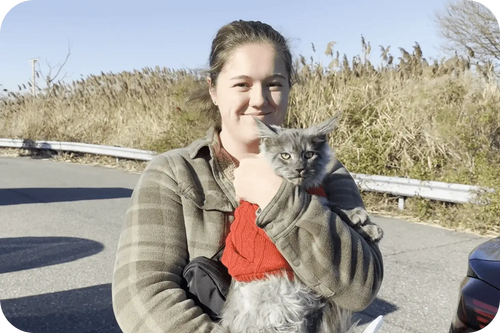
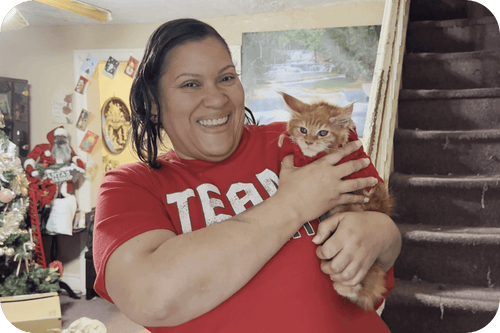
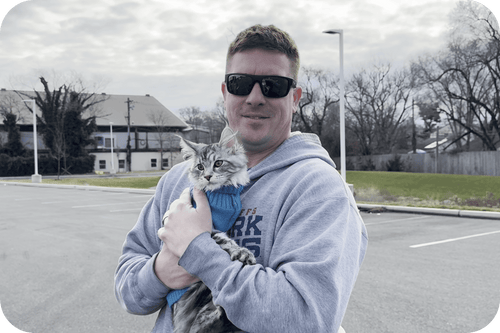



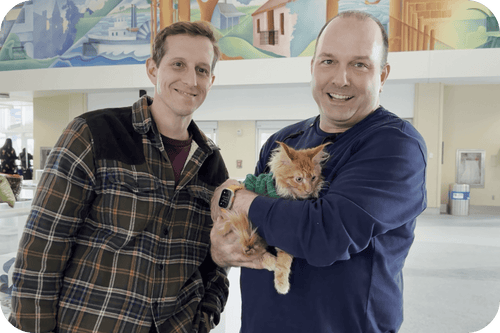
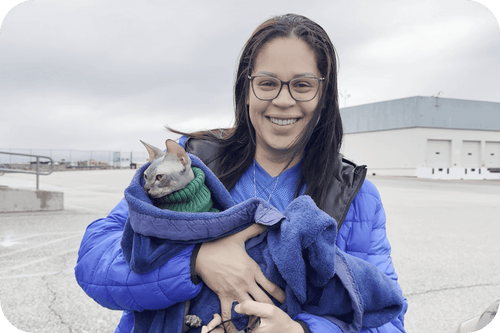

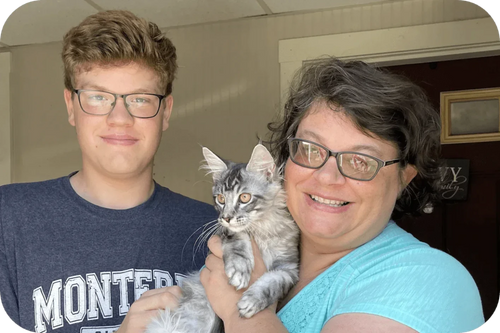
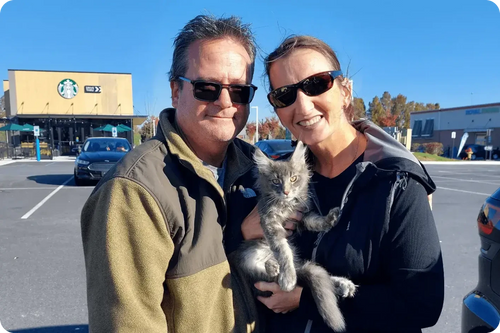


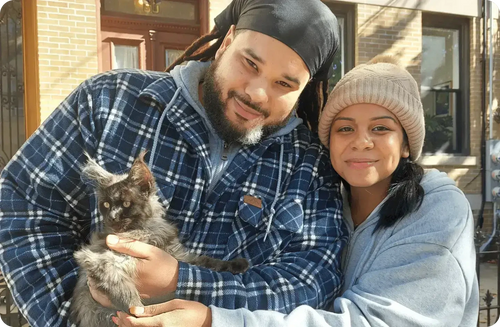
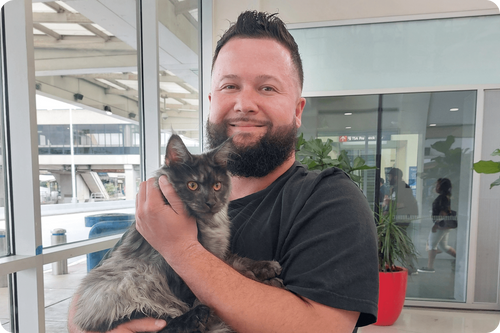












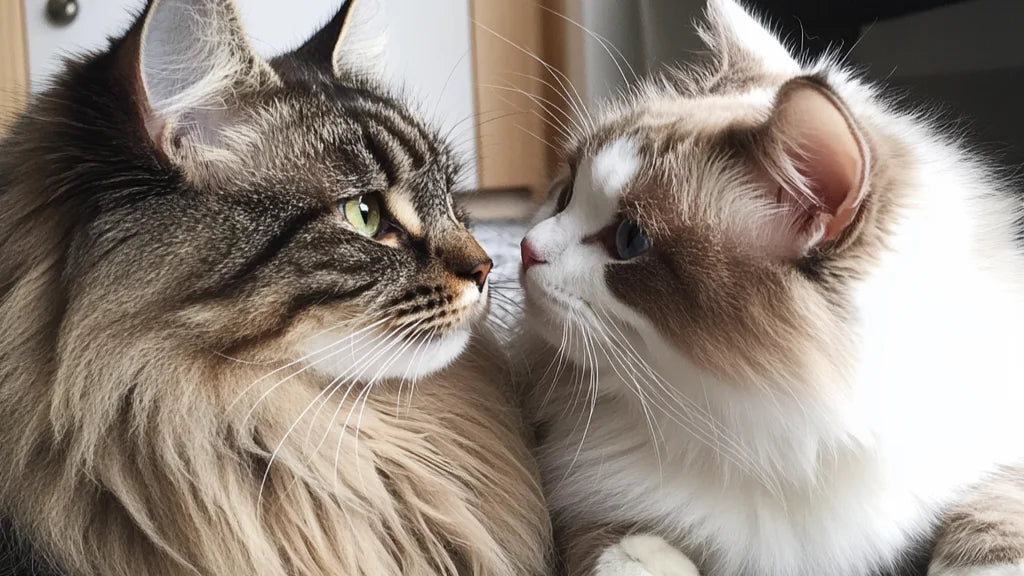
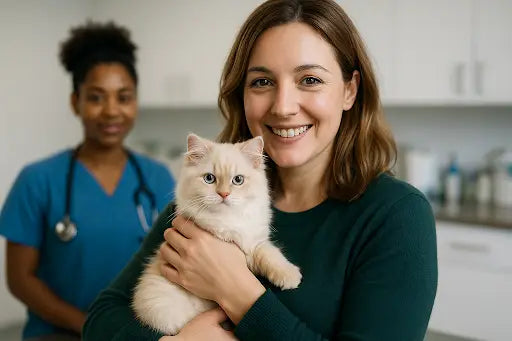






Comments(0)